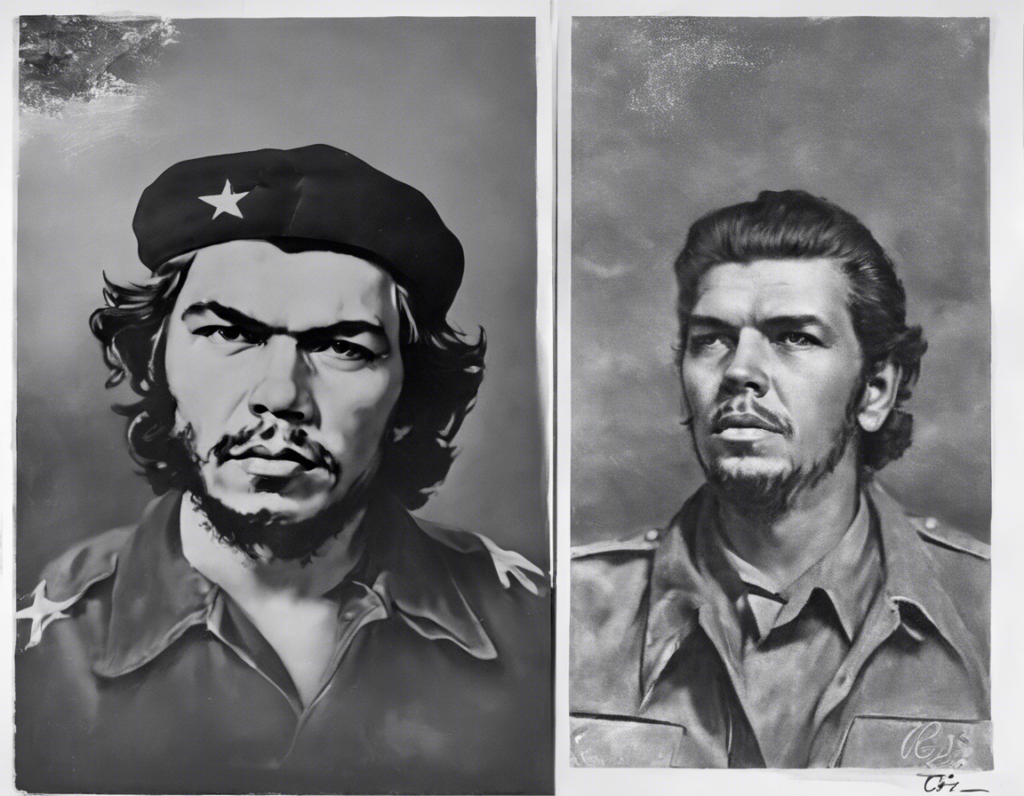Che Guevara and Gran Turismo may seem worlds apart at first glance, with one being a historical revolutionary figure and the other a popular video game franchise. However, a closer analysis reveals interesting parallels in terms of their impact, influence, and enduring legacies. In this comprehensive article, we will delve into the similarities and differences between Che Guevara and Gran Turismo, exploring their revolutionary nature in respective fields and the lasting impressions they have left on society.
The Revolutionary Spirit of Che Guevara and Gran Turismo
Che Guevara:
Che Guevara, a key figure in the Cuban Revolution, was a Marxist revolutionary, physician, author, and guerrilla leader. His unyielding commitment to social justice, anti-imperialism, and international solidarity made him a symbol of rebellion and hope for many around the world. Guevara’s famous motto, “Hasta la victoria siempre” (Ever onward to victory), encapsulates his unwavering resolve to fight for a more just society, free from oppression and exploitation.
Gran Turismo:
On the other hand, Gran Turismo is a groundbreaking racing simulation video game series developed by Polyphony Digital. Since its inception in 1997, Gran Turismo has revolutionized the racing genre, setting new standards for realism, authenticity, and attention to detail. The game’s meticulous design, emphasis on accurate car models and physics, and immersive gameplay experience have earned it a loyal following of racing enthusiasts and gamers alike.
Similarities between Che Guevara and Gran Turismo
Commitment to Excellence:
Both Che Guevara and Gran Turismo share a common commitment to excellence in their respective endeavors. Guevara’s pursuit of a better world through revolution was fueled by his relentless dedication to his ideals, even in the face of daunting challenges. Similarly, Gran Turismo’s developers have consistently strived for perfection in creating a true-to-life racing experience, pushing the boundaries of technology and innovation with each new installment.
Iconic Status:
Che Guevara and Gran Turismo have achieved iconic status in their own spheres, becoming synonymous with revolution and racing, respectively. Guevara’s image, immortalized in the iconic “Guerrillero Heroico” photograph by Alberto Korda, has become an enduring symbol of resistance and idealism. Likewise, Gran Turismo’s logo and distinctive style have become emblematic of the racing genre, setting it apart as a trailblazer in the world of video games.
Global Impact:
Both Che Guevara and Gran Turismo have had a significant global impact, transcending borders and cultures to inspire individuals across different generations. Guevara’s revolutionary fervor resonated with oppressed peoples around the world, sparking movements for social change and liberation. In a similar vein, Gran Turismo’s influence has extended far beyond the realm of gaming, shaping the automotive industry, motorsport community, and popular culture at large.
Differences between Che Guevara and Gran Turismo
Ideological Orientation:
One of the key differences between Che Guevara and Gran Turismo lies in their ideological orientation. Guevara was a staunch Marxist-Leninist revolutionary, advocating for armed struggle and socialist transformation. In contrast, Gran Turismo is a commercial video game franchise developed within the capitalist framework of the entertainment industry, driven by market forces and consumer demand.
Methods of Engagement:
While Che Guevara engaged in armed insurrection and guerrilla warfare to challenge oppressive regimes and imperial powers, Gran Turismo adopts a more pacifist and recreational approach to entertainment. The game allows players to experience the thrill of high-speed racing in a virtual environment, promoting competition, skill-building, and camaraderie among enthusiasts.
Legacy and Impact:
The legacy and impact of Che Guevara and Gran Turismo also diverge in significant ways. Guevara’s revolutionary actions and writings continue to inspire social movements and political activism worldwide, cementing his status as a symbol of resistance against injustice. In contrast, Gran Turismo’s legacy is primarily associated with technological innovation, artistic creativity, and commercial success in the competitive gaming industry.
FAQs (Frequently Asked Questions)
1. Was Che Guevara a successful revolutionary?
- Yes, Che Guevara played a key role in the Cuban Revolution led by Fidel Castro and went on to participate in revolutionary movements in other countries, becoming a symbol of anti-imperialism and social justice.
2. What makes Gran Turismo different from other racing games?
- Gran Turismo stands out for its unparalleled attention to detail, realistic physics, and extensive lineup of authentic cars, making it a top choice for racing enthusiasts seeking a true-to-life gaming experience.
3. How did Che Guevara’s ideologies influence his revolutionary activities?
- Che Guevara’s Marxist-Leninist beliefs informed his commitment to armed struggle, international solidarity, and the vision of a socialist society based on equity, justice, and human dignity.
4. What sets Gran Turismo apart from other video game franchises in the racing genre?
- Gran Turismo’s focus on realism, accuracy, and simulation quality distinguishes it from competitors, offering players a unique and immersive racing experience that mirrors the intricacies of real-world driving.
5. What is the significance of Che Guevara’s iconic image in popular culture?
- Che Guevara’s iconic image has become a symbol of resistance, revolution, and defiance against oppression, transcending its historical context to inspire diverse movements and artistic expressions worldwide.
In conclusion, the comparison between Che Guevara and Gran Turismo illuminates intriguing parallels and contrasts in their revolutionary nature, impact, and enduring legacies. While Che Guevara symbolizes the spirit of political rebellion and social change, Gran Turismo embodies innovation, excellence, and entertainment in the realm of video games. Both figures, in their own ways, have left indelible marks on history and society, resonating with audiences across different domains and generations.
